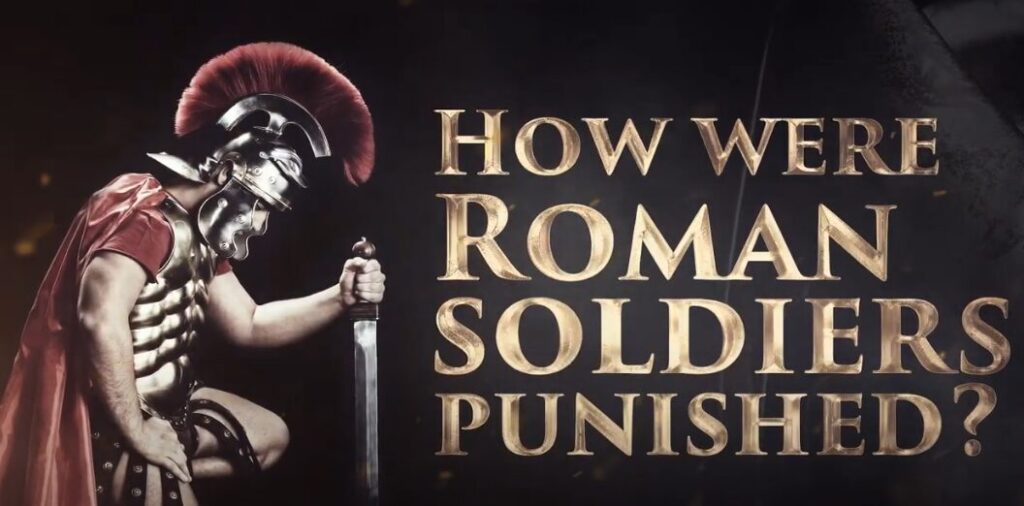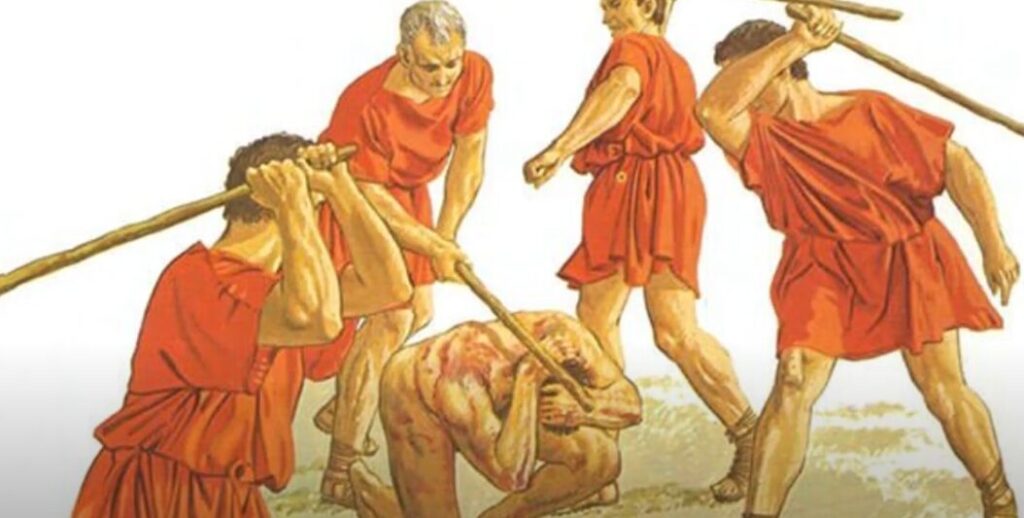
The Roman army is well-known for its strength and discipline, but what happened to soldiers who broke the rules? When Roman soldiers misbehaved or committed crimes, they faced a variety of punishments. Let’s explore some of the typical penalties, ranked from the least to the most severe.
Fines: The Mildest Punishment
The most common punishment for minor misbehavior was a fine. Soldiers could be fined for showing a lack of will during training, disobeying orders, or any acts of misconduct. Instead of taking money from their savings, the fine was deducted from their next monthly salary, which could lead to reduced pay or even no pay at all.

Munerum Indictio: Extra Duties
The second level of punishment was known as Munerum Indictio. This punishment involved giving the soldier extra tasks that were not part of their regular duties. Often, these tasks were unpleasant and humiliating. For example, a soldier might have to clean latrines, carry heavy objects, or go on risky reconnaissance missions alone under the cover of night.
Militiae Mutatio: Humiliation through Demotion
Another form of punishment was Militiae Mutatio, which involved temporarily moving the soldier to another branch of the army. For experienced soldiers, this could mean spending weeks with new recruits, causing them embarrassment. In severe cases, soldiers could suffer a Gradus Deiectio or demotion, where a centurion could be reduced to the rank of a regular legionary, effectively slowing down their career.
Physical Punishments: Whipping and Dishonorable Discharge
When soldiers committed serious offences, harsher punishments were applied. One common punishment was whipping. The soldier would be tied up in front of their peers, stripped of clothing, and whipped a certain number of times. The goal was humiliation rather than injury.
If a soldier’s actions were bad enough, they could be dishonorably discharged. This penalty carried severe consequences like losing retirement benefits, being unable to share in spoils of war, or even having their name removed from the military records, which meant being forgotten in the eyes of history. This social death was a heavy blow to any Roman soldier.
Death Penalty: The Ultimate Consequence
In cases of extreme insubordination or cowardice in battle, soldiers could face the death penalty. Those soldiers who felt betrayed by a comrade would carry out the execution, using thick sticks to beat the offender to death in front of witnesses. If a soldier was found guilty of spying or aiding the enemy, the punishment was also death. They would be placed in a bag with snakes and stones and thrown into a river or sea, symbolizing their erasure from history.
Decimation: A Rare but Terrifying Punishment

The most dreaded punishment was decimation, reserved for cases of mass insubordination. In this punishment, a group of ten soldiers would each receive a stone. The soldier who drew the different stone faced death at the hands of their nine comrades. Not only did this create fear, but it also deeply impacted the morale of the surviving soldiers, who would also receive poor rations and sleep outside without protection.
Conclusion
The Roman army maintained its strength through strict discipline and harsh punishments. From fines to brutal executions, the penalties for misbehavior were designed to instill fear and maintain order. Understanding these punishments gives us insight into the fierce discipline that characterized one of history’s most formidable military forces.
